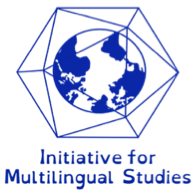HaBilNet Travel Awards to attend GURT
At the suggestion of HaBilNet Advisory Board Member Lourdes Ortega HaBilNet is pleased to award HaBilNet Travel Awards in order to attend the Georgetown University Round Table, GURT 2020, on "Multilingualism: Global South and Global North Perspectives".
The awards go to two junior scholars, Sally Rachel Cook and Nishita Grace Isaac, whose respective papers contribute to HaBilNet's mission to support and stimulate scientific research into harmonious bilingualism.
Because GURT 2020 did not actually take place, the planned award ceremony was replaced by this little video featuring Lourdes Ortega and HaBilNet Director Annick De Houwer.
GURT 2020 took place virtually, via a private FaceBook page.
Nishita Grace Isaac contributed a powerpoint presentation on A Tribal Child's Schoolscape: From Politics to Pedagogy. You can find the abstract here.
Sally Rachel Cook contributed a video to explain more about her co-authored paper on The Healing Role of a LX in Survivors of Sexuality-Persecution. You can find the abstract here.
Together with Dr. Ortega, HaBilNet hopes that the travel award recipients will be able to still travel to Georgetown later this year to present their work in person.
What is GURT?
Every spring, the Department of Linguistics of Georgetown University hosts the Georgetown University Round Table on Languages and Linguistics (GURT). This is a peer-reviewed conference that accepts researchers in Linguistics from around the world. A select number of papers from GURT are published in a conference proceedings. Topics vary from year to year.
More about GURT
The HaBilNet Family Language Policies colloquium at GURT 2020






